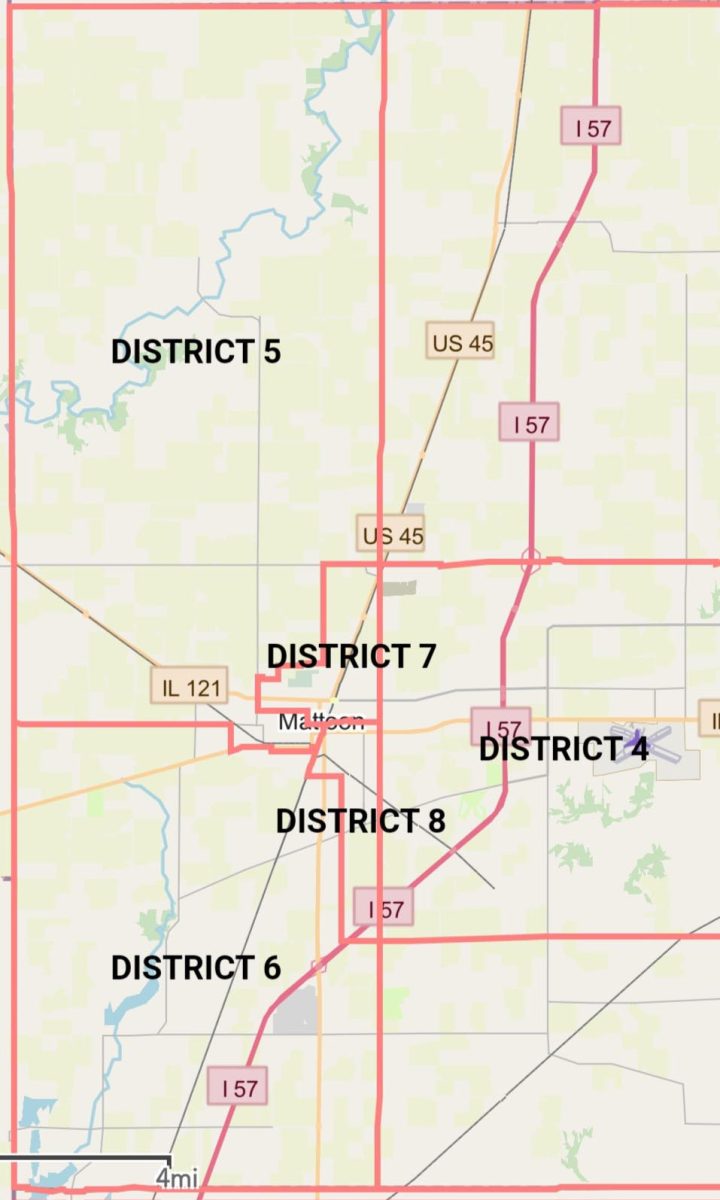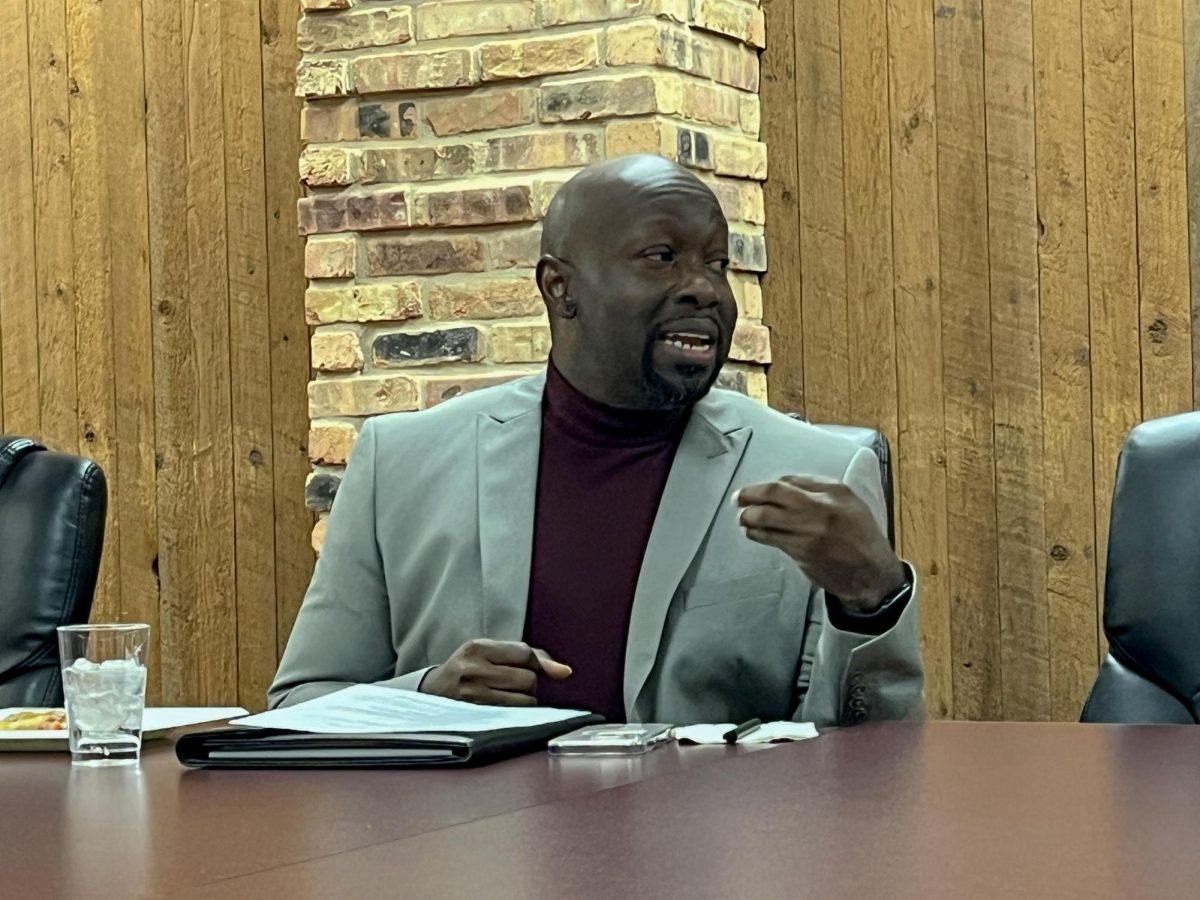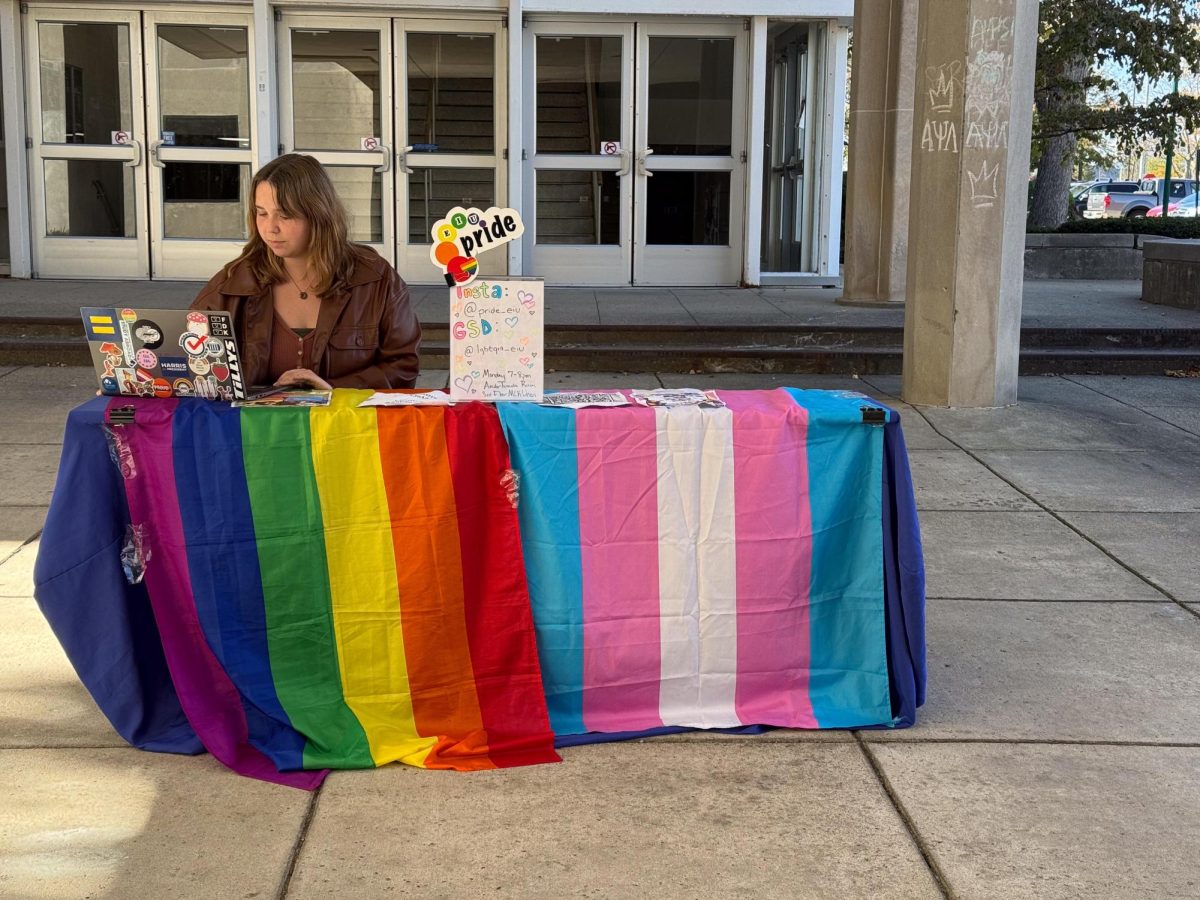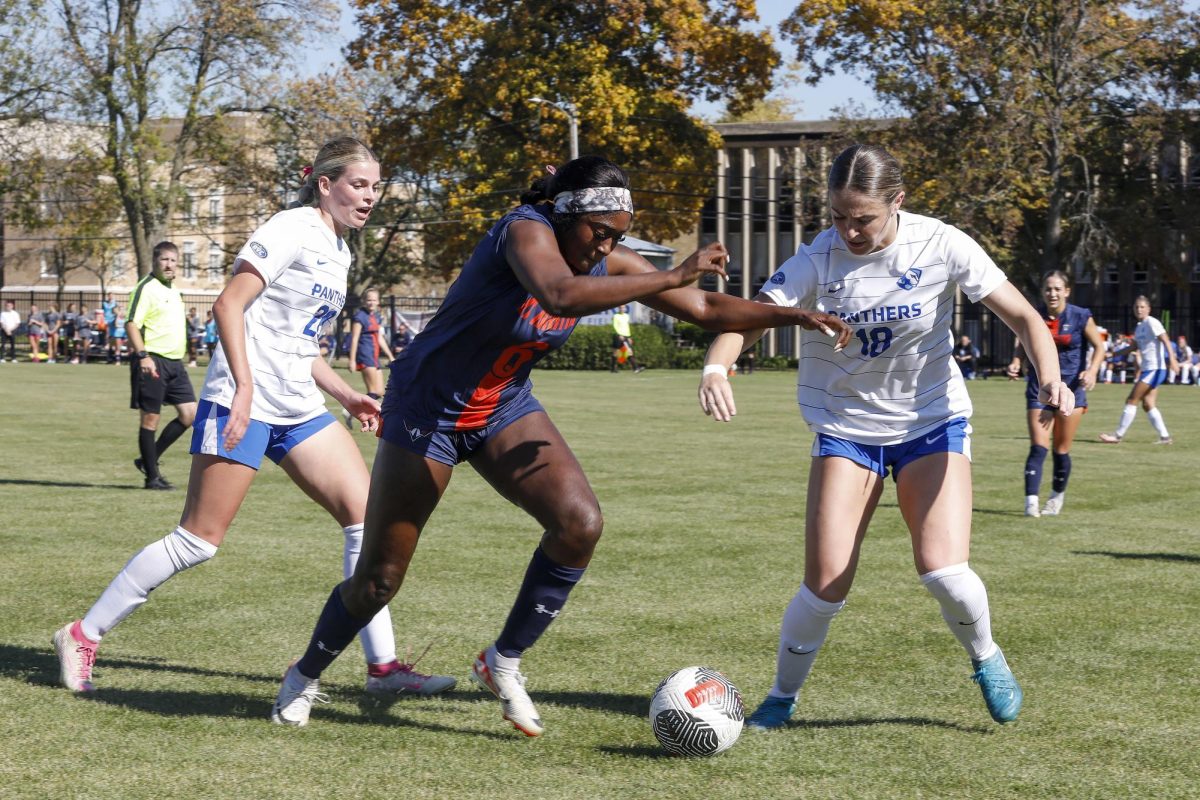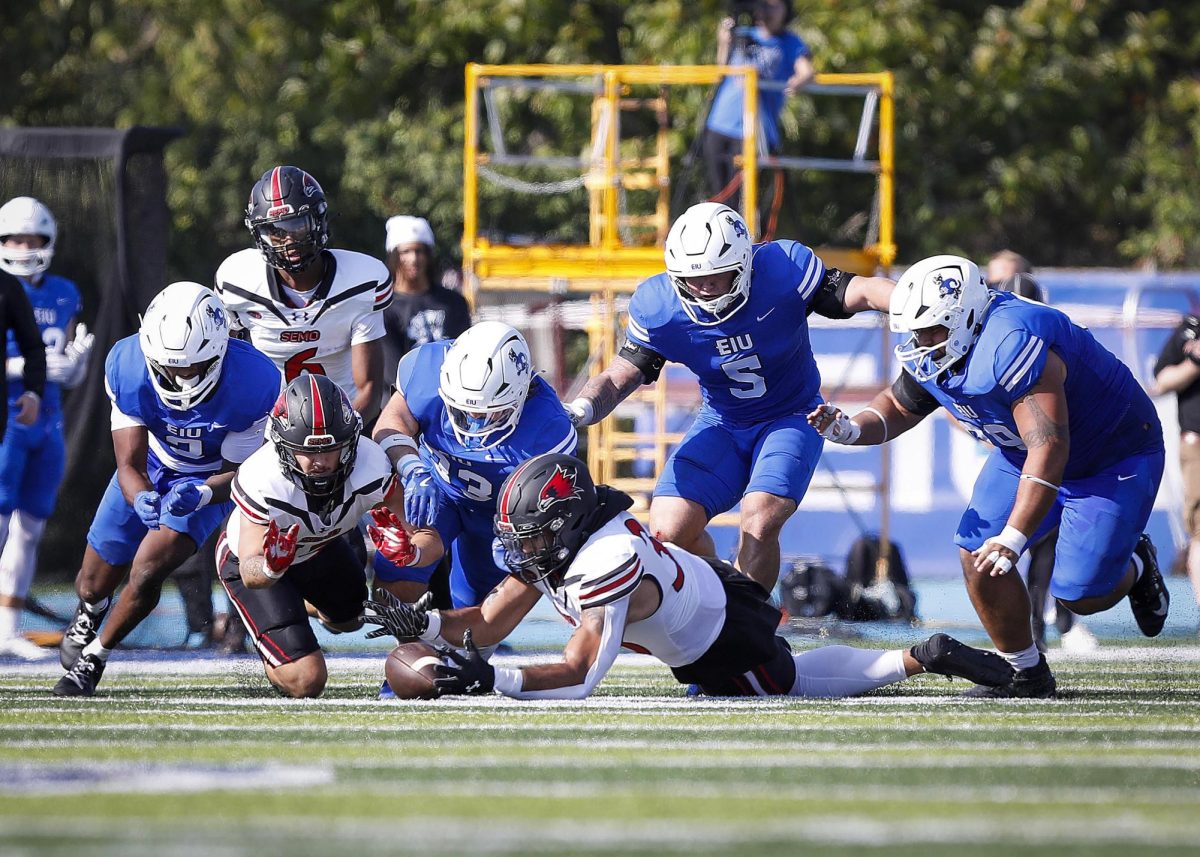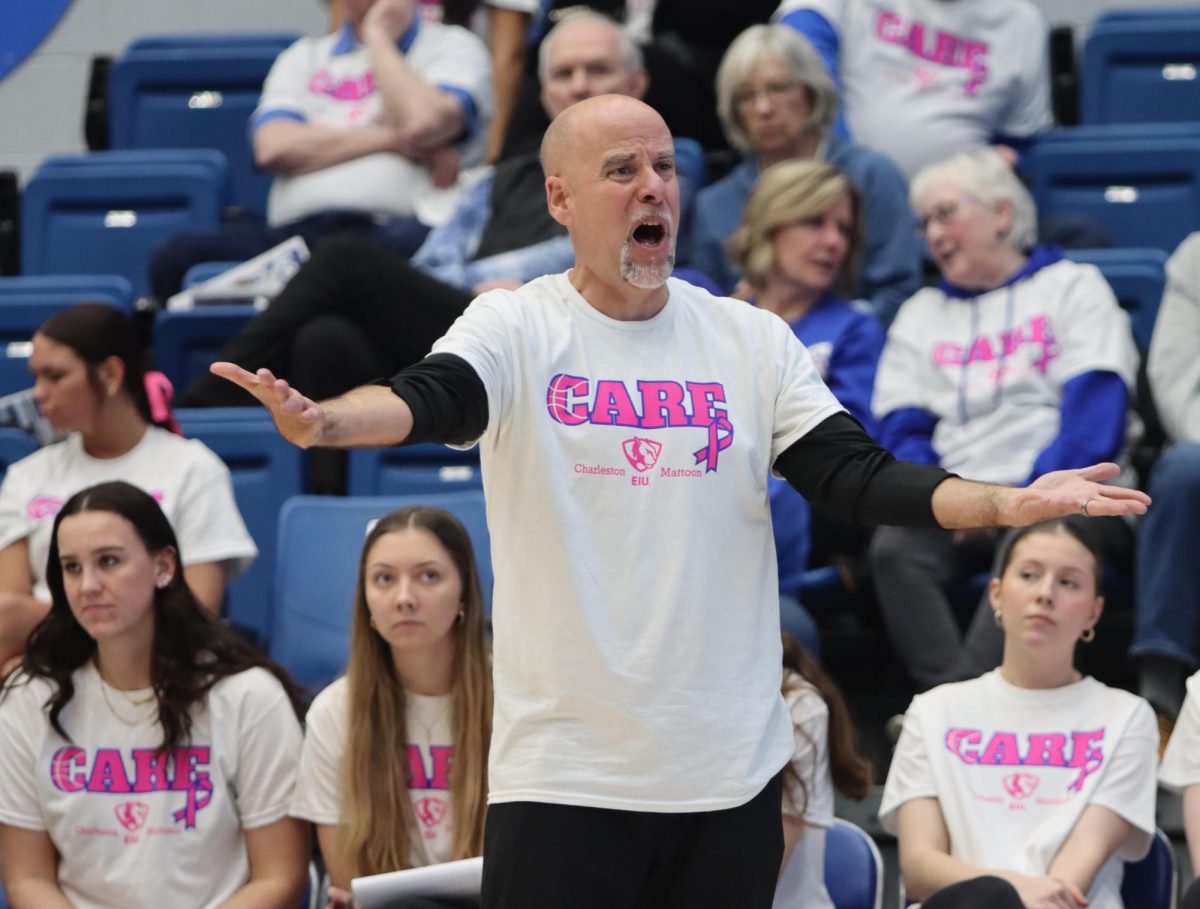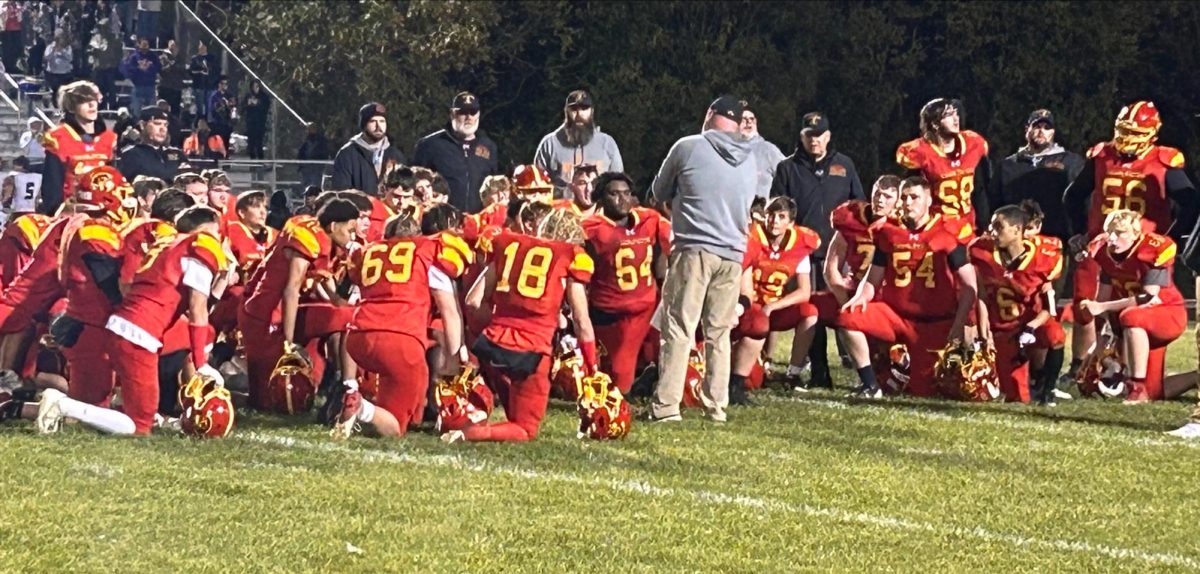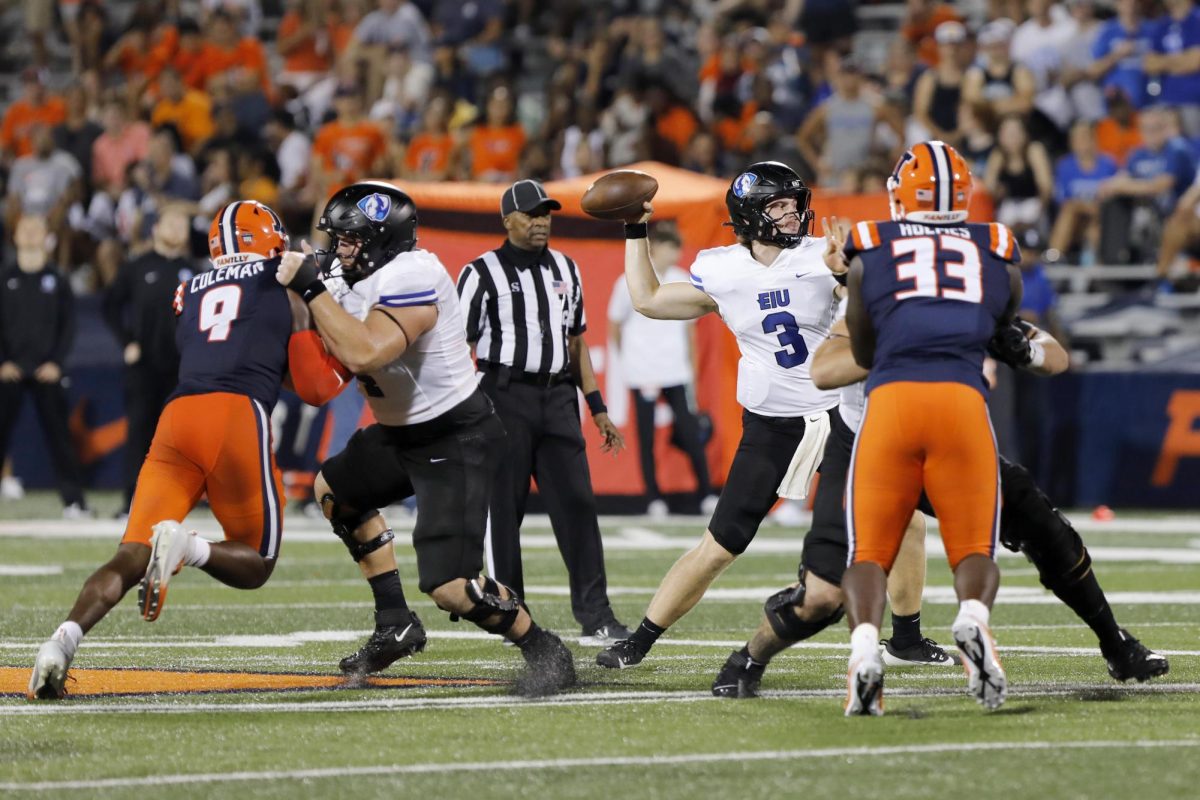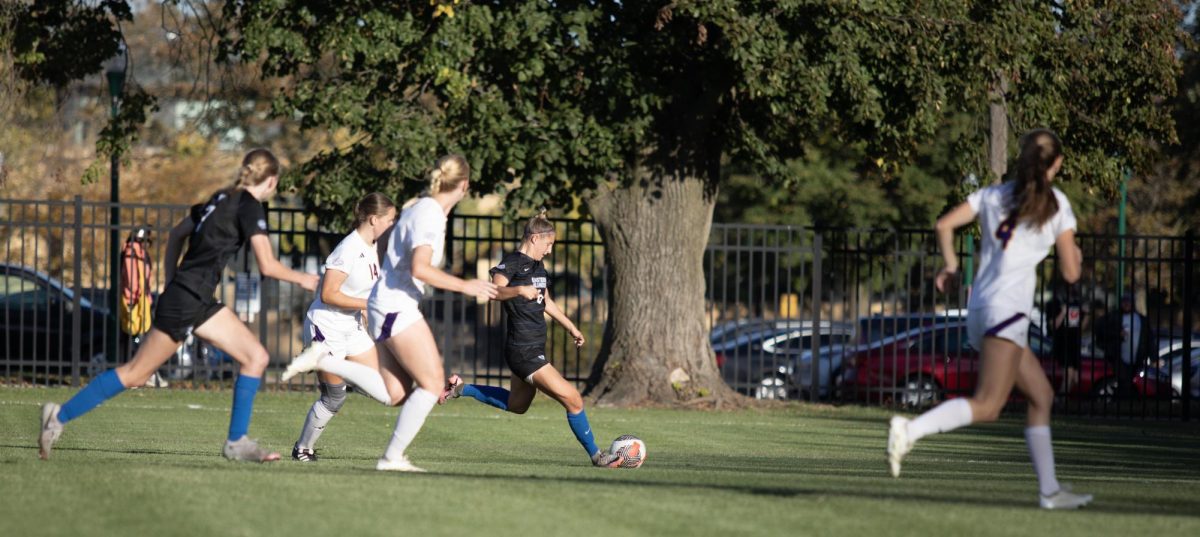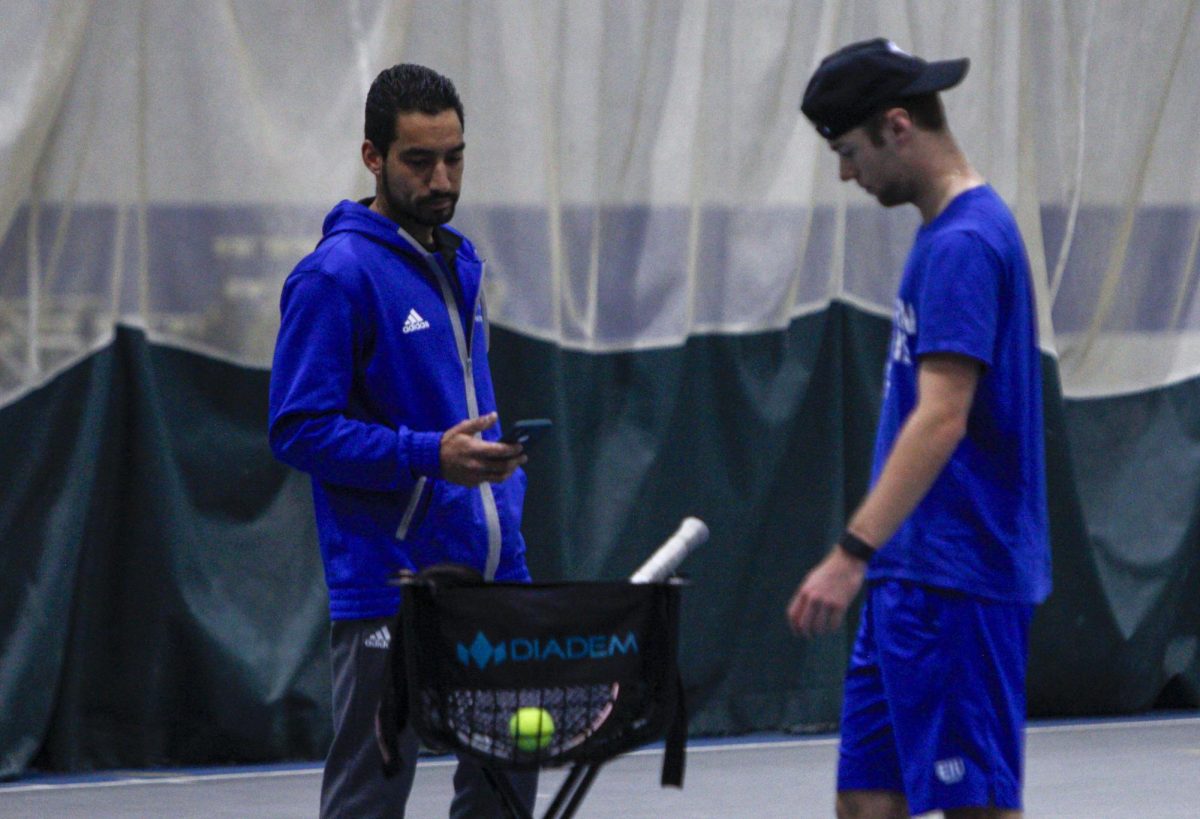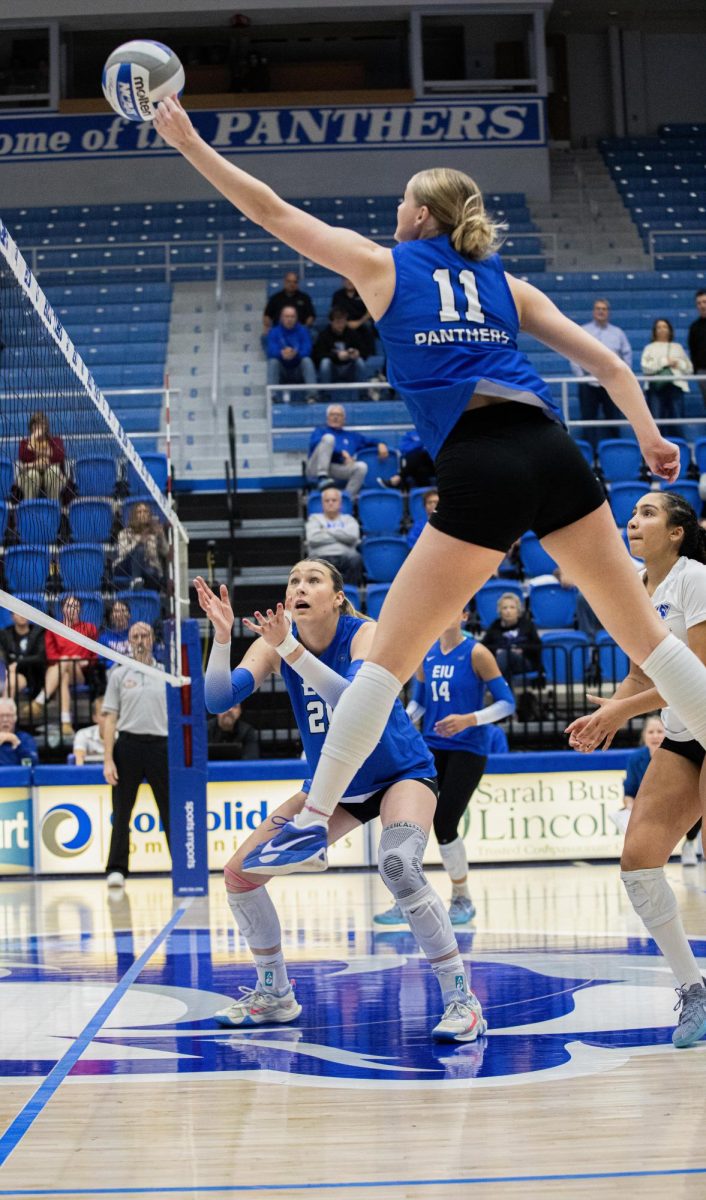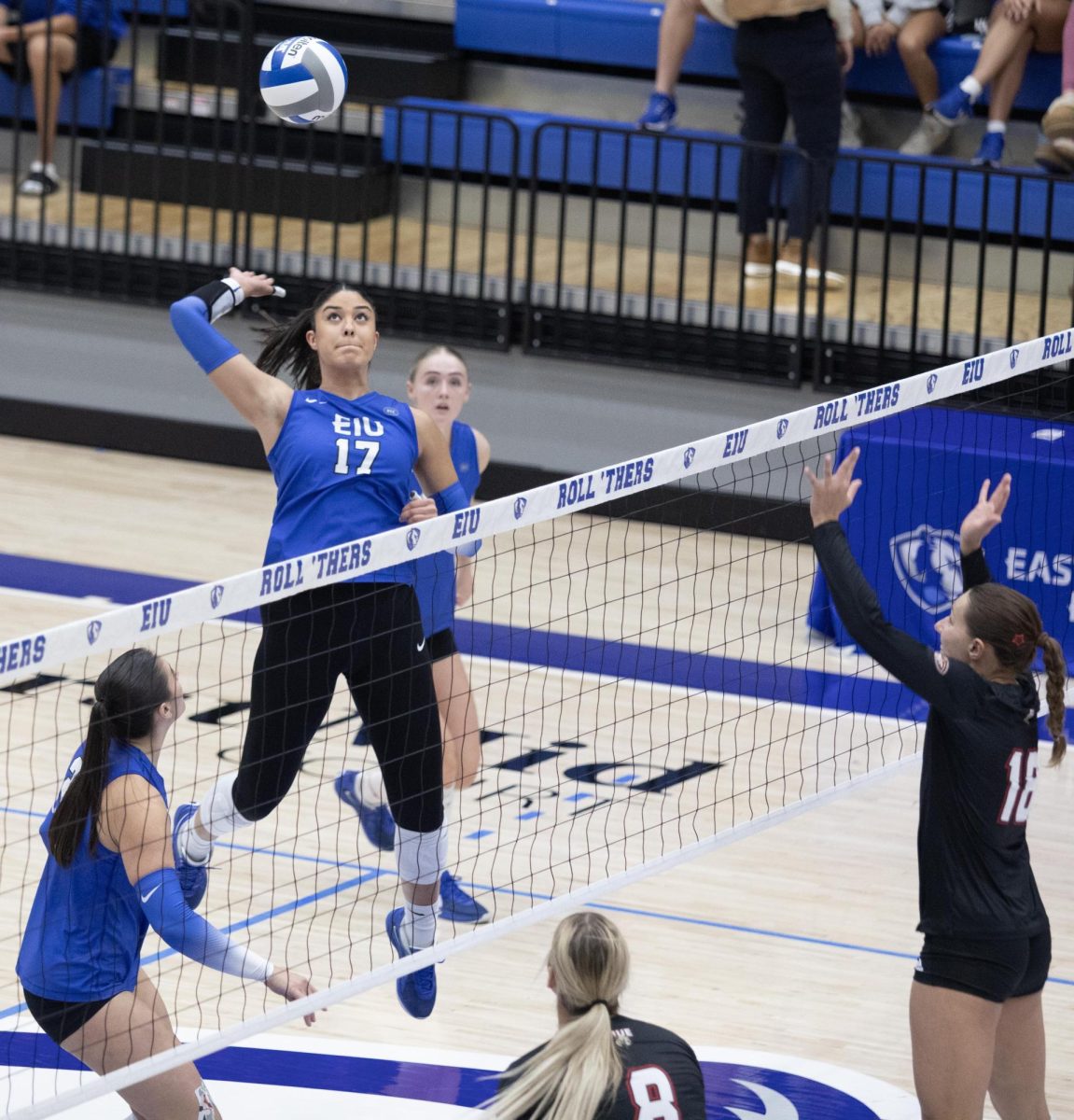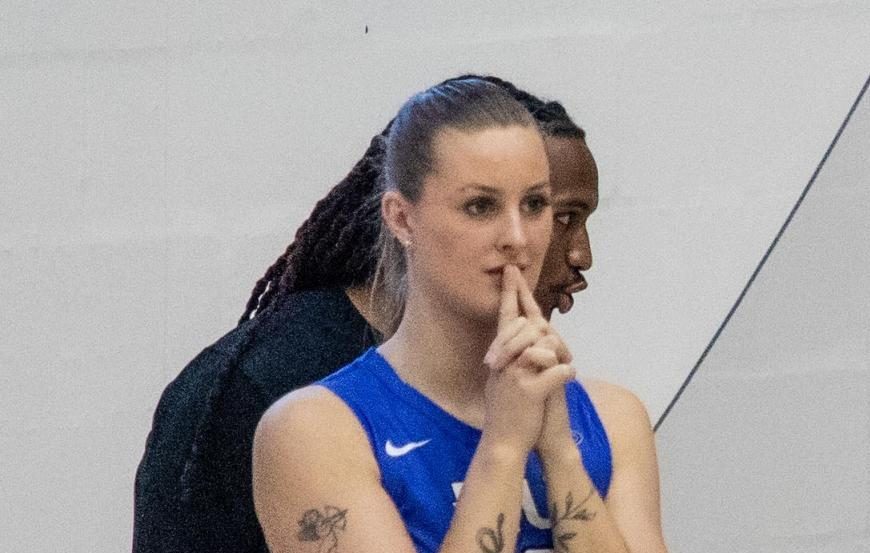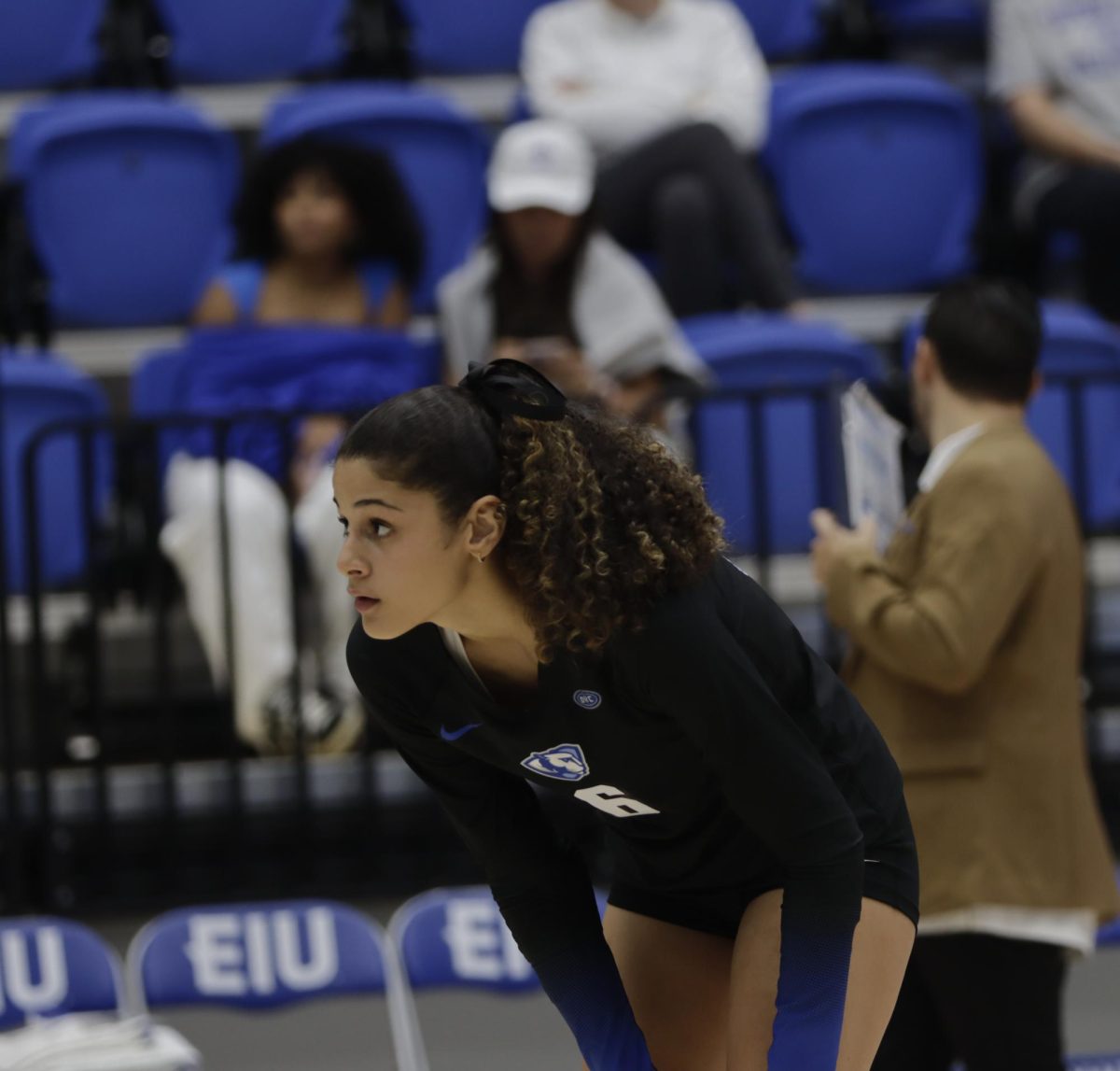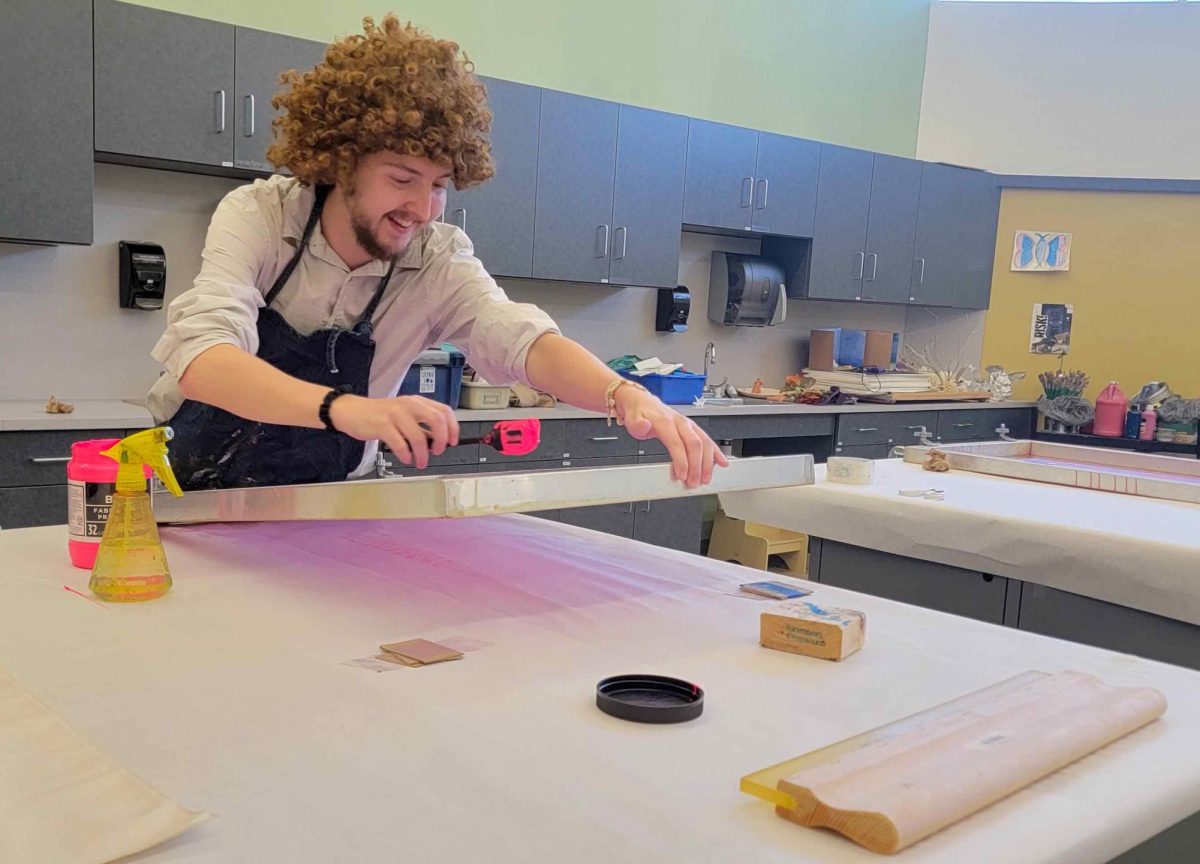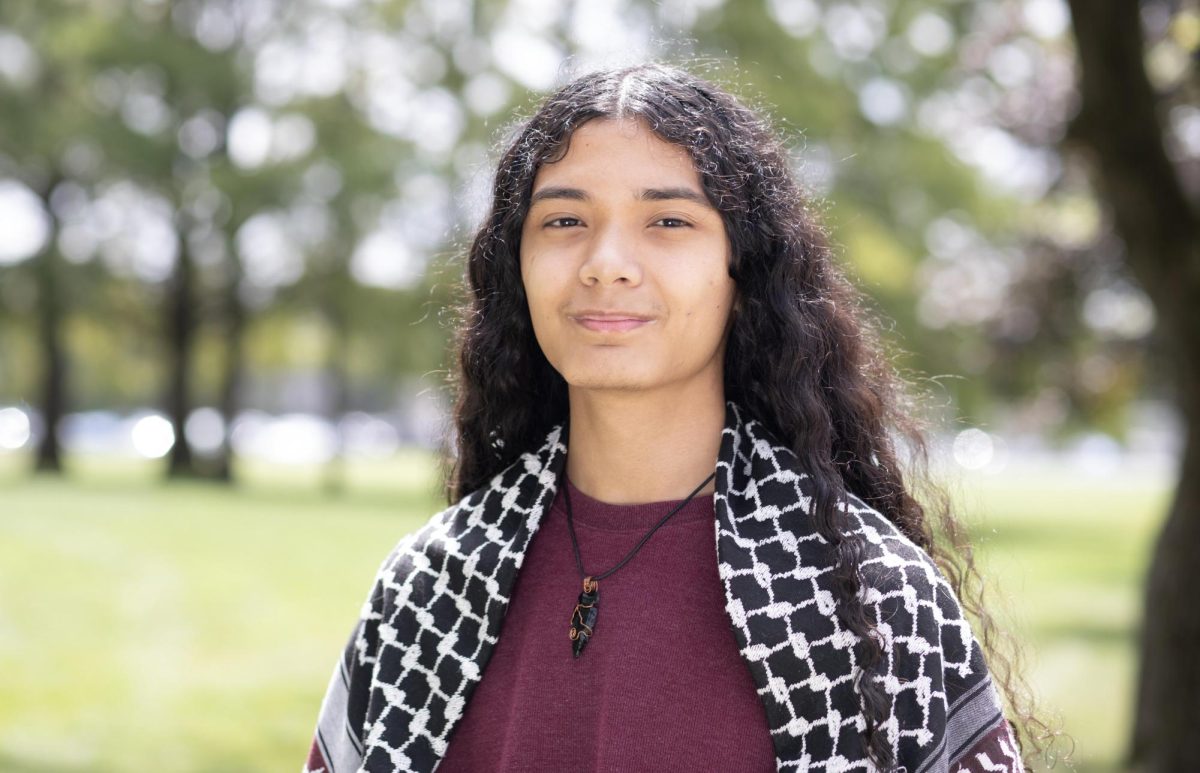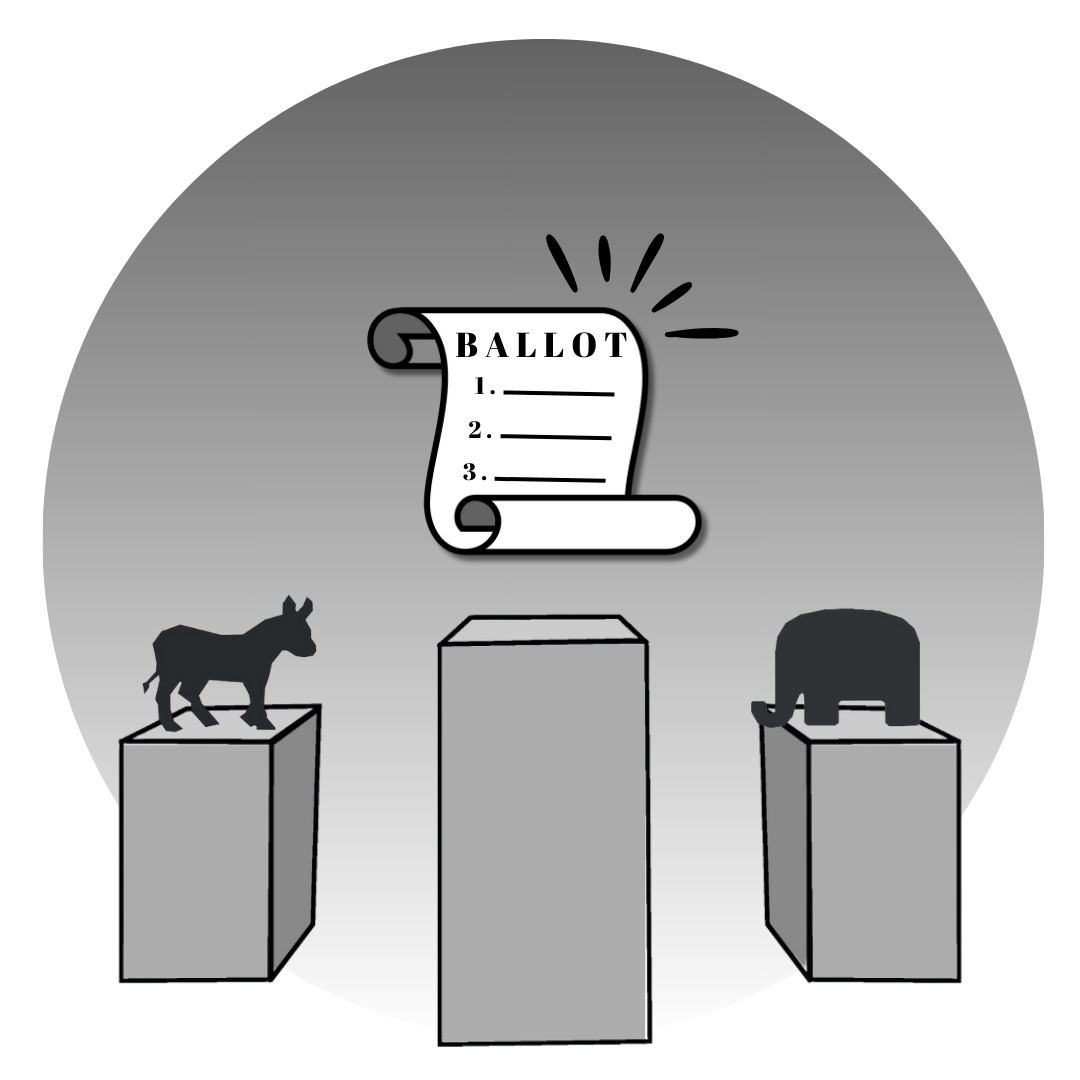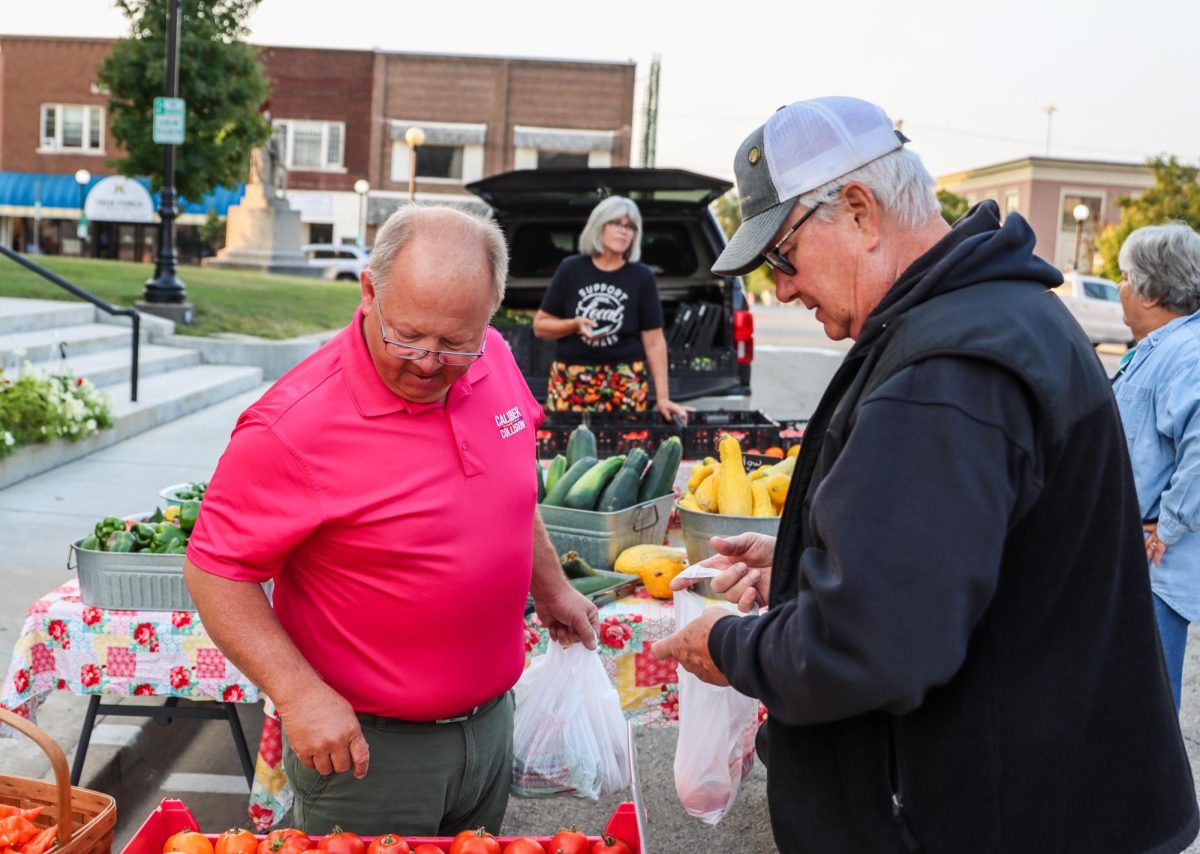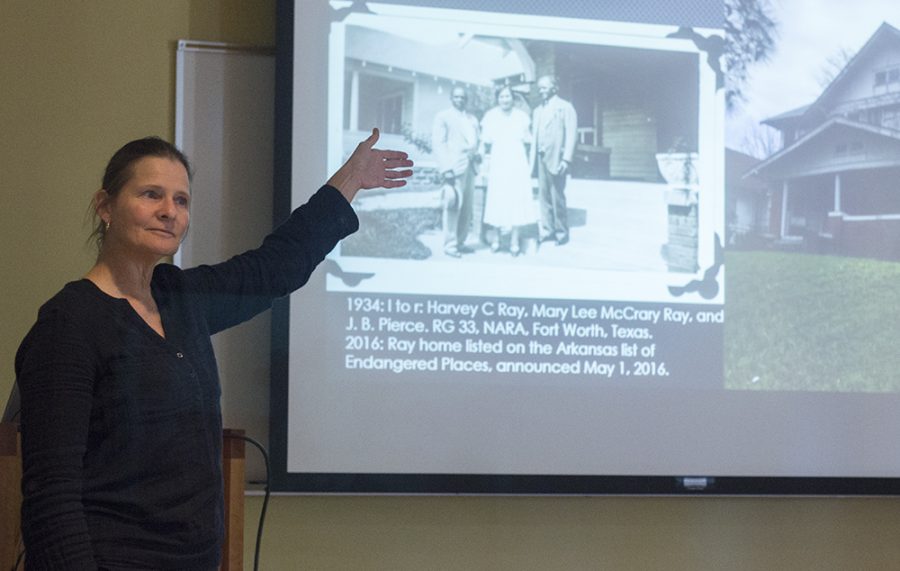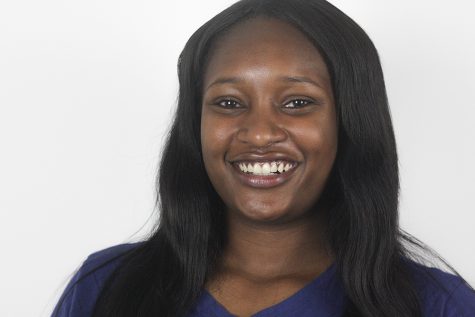History professor uses historical photo to talk Civil Rights
Jada Huddlestun | The Daily Eastern News History professor Debra Reid explains a picture of Civil Rights activists at her presentation on visual culture during the Civil Rights movement in Booth Library Monday.
September 20, 2016
Debra Reid, professor of history, explained the significance of different images of African-American leaders, protestors and church members during an educational presentation on Monday evening in room 4440 of the Booth Library.
An excerpt from “Colored People” by Henry Louis Gates Jr. and classic images of The Little Rock Nine was used to set the mood for understanding Civil Rights.
The images presented were pictures of middle class African-Americans. The earliest images dated back to the 1920s.
Reid said most of the images she displayed were rare and could be only found in the south of the United States. Some were even rare to get digitized.
The presentation is called “Collecting, Preserving and Interpreting Material Evidence of the Struggle for Civil Rights.” Reid’s presentation is featured with Booth Library’s “For All the World to See; Visual Culture and the Struggle for Civil Rights” exhibit.
Reid displayed an image from 1920 with an African-American woman standing outside a “Demonstration House,” where the woman showed her success with gardening.
Other women stood on the porch of the house wearing white and some were dressed in the best attire at the time.
The audience ranged from older guests, Booth Library staff and one student.
Reid hopes one day more students will show up to her presentations and get involved with them.
Reid said the purpose of her presentation is to not forget what happened in the past.
“I’m fascinated by the fact that these folks pretty much defy expectations of every turn,” Reid said. “You learn a certain lesson in the history books and the lives that these people lived are very different than what you learn in the history books.”
Reid said she hopes people will soon look at things from a different perspective.
“It’s about visual awareness and thinking about how we could gather even more evidence to help understand this story,” Reid said. “The histories of the Civil Rights movement.”
Reid said she is passionate about African-American heritage because it has always caught her attention.
“I’ve always been fascinated by learning about a history that does not often get written.” Reid said. “I just love to be a part of generating an interest in a past that we need to remember.”
Reid said talking to elders about the civil rights movement is a way for those to learn about the issue.
“If people talked to their elders, they’ll learn amazing things,” Reid said. “By asking questions of older people, anybody will uncover their past and the past and family actually still preserve.”
Reid said learning about African-American heritage was difficult growing up because people never talked about it. She said when she was growing up, her history books focused on “great white men.”
Reid said Civil Rights is something people sometimes forget and she thinks there needs to be more things written about it.
“I wanted to be obvious that this past needs to be preserved because people forget it,” Reid said. “There needs to be more documentation of the opposition.”
Reid said African-American heritage should be discussed during any month and not just February.
“We need to talk about Civil Rights all the time, we can triple it up in February,” Reid said. “But if we don’t talk about it every other day of the year, then were doing a disservice to the past.”
During the presentation, Reid passed around a calendar with artifacts that represented her presentation.
After the presentation, there was a question and answer for clarification on Reid’s presentation.
Janet Pernell can be reached at 518-2812 or jopernell@eiu.edu.



